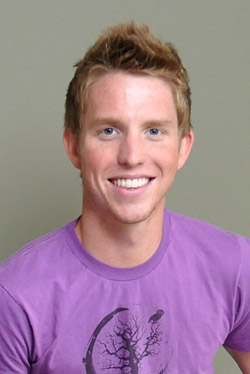
Andrew Hughes
Andrew Hughes, a Bachelor of Psychology (honours) student at UBC’s Okanagan campus, will head to Melbourne, Australia, this July to present his research at the U21 Undergraduate Research Conference.
Hughes is one of three students from UBC who received an award through UBC’s Go Global program to cover the costs of the trip, including flight, accommodation, and program fees. The annual conference brings together undergraduate students from around the globe to showcase their research for an international audience of fellow students and academics.
“I was ecstatic when I heard of my acceptance to the U21 conference,” says Hughes, noting that ever since starting on his research project a year ago he has been eager to share his work as much as possible.
“This conference takes that to a whole new level,” he says. “The U21 conference is an amazing opportunity because it is comprised of so many great minds from all over the world. I have no doubt that this experience will be the highlight of my undergraduate career.”
Hughes’ research investigates the relative competencies of the brain’s left and right hemispheres in processing emotion. His work suggests that positive emotions are processed more efficiently with the left hemisphere, while negative emotions are processed more efficiently with the right hemisphere.
“We also found through the research that positive emotions were processed more efficiently by either hemisphere alone,” he says, “while negative emotions were processed most efficiently by both hemispheres together.”
This year’s U21 conference takes place from July 1 to 7 at the University of Melbourne. The theme is Faculty of Imagining, inspired by physicist Albert Einstein, who celebrated imagination as being ‘more important than knowledge.’
“I intend to interact with as many other young researchers as possible and develop international connections that will be invaluable to my future academic experience,” says Hughes. “I hope to return to Canada with a story that will inspire other students to pursue their own research opportunities.”
To learn more about the conference, visit the University of Melbourne’s URC 2010 website.
— 30 —